
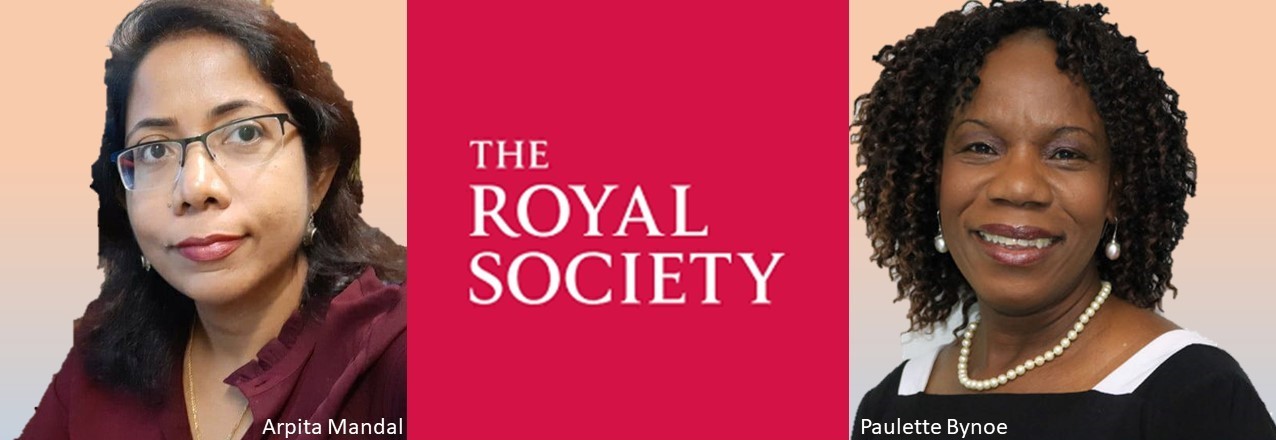
Principal Applicant : Dr Arpita Mandal, Senior Lecturer, Dept of Geography and Geology. The UWI, Mona Campus
Co Applicant : Dr Paulette Bynoe, Senior Lecturer and Interim Deputy Dean of the School of Graduate Studies and Research. University of Guyana.
Award: 6000GBP
The project involves a comparative and interdisciplinary study of the urban flood risk in the two capital cities of Guyana (Georgetown) and Jamaica (Kingston) both of which have been impacted from short duration high intensity rainfall associated with or without tropical storms and hurricanes. Increase in urbanization with limited land space results in excess stormwater runoff in these urban areas which are primarily coastal cities and located on floodplains of major river systems. Jamaica has been affected by flooding, some of the major ones are the recent 2020 rains from tropical storm Zeta (Jamaica), May rains of 2017 and from tropical storms and hurricanes in the last ten years. Kingston’s major infrastructures has shown damage from excess stormwater runoff resulting in collapse of sections of gully/drains, collapse of bridges and damage to major roadways due to landslides and flooding. In Guyana, the capital city of Georgetown is well endowed with water, and has to be drained by a complex system of canals, drains and sluices. The city is below high-tide sea level and has to be protected by a wall to prevent inundation, and continues to be faced by challenges from flooding and consequential nuisances such as mosquitoes and other insects. This flooding is partly caused by the city’s coastal plain location and low elevation, its proximity to the Demerara River; and the presence of underlying, impervious clay soils hampering surface water drainage. The city continues to get affected by flooding from biannual, seasonal rains, with the flooding of 2005 being the most significant one in the last decade.
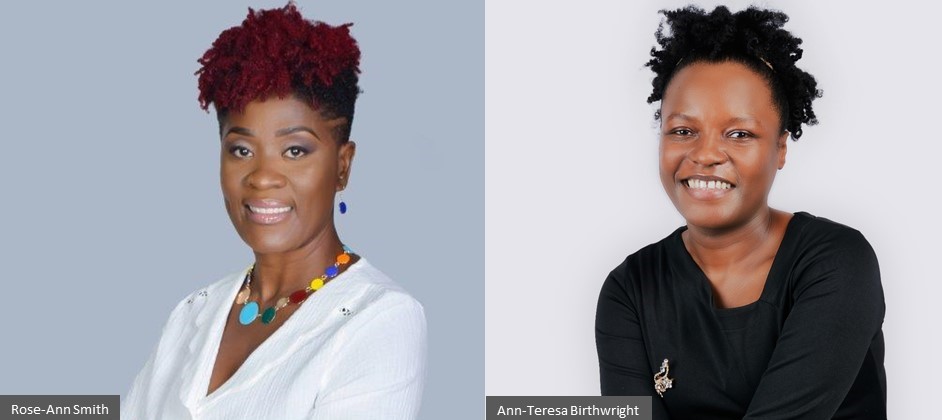
Jamaican Women in Coffee (JAWiC) ― the national chapter of the International Women's Coffee Alliance (IWCA) has successfully secured its first grant of CAD$21,972 from the 2021/2022 Canada Fund Local Initiative (CFLI) program. As a non-profit organization, JAWiC aims to improve women’s participation in the coffee value chain, improve the production and quality of their coffee for local and international markets, and facilitate women with the power of a collective voice, while uplifting them as leaders within their communities and the industry. The project “Strengthening the capacity of women coffee farmers in Jamaica through Training” was conceptualized by Dr. Anne-Teresa Birthwright (Research Lead at JAWiC) and Dr. Rose-Ann Smith (Lecturer at the University of the West Indies). The projects seeks to increase the capacity women coffee farmers through the provision of practical resources and hands-on training that will improve their coffee production and quality, manage the impact of climate change, as well as strengthen their participation within the coffee value chain. This project is a step towards fulfilling JAWiC’s mission of ensuring a sustainable and equitable future for women in Jamaica’s Coffee Industry.
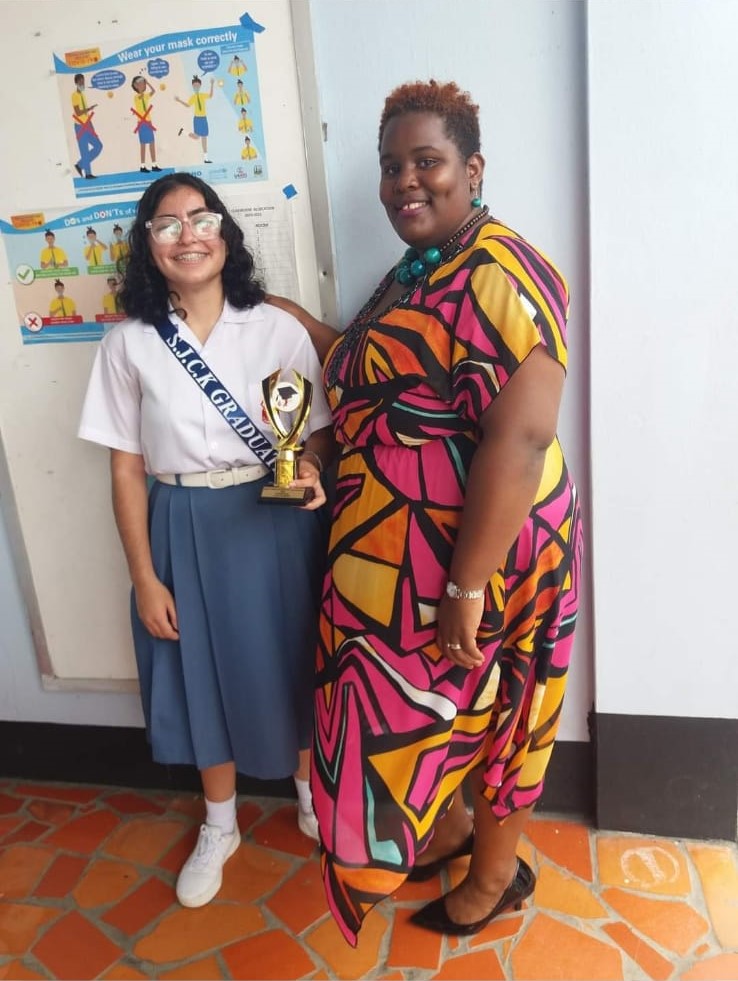
Dr. Rose-Ann Smith, Lecturer in the Department of Geography and Geology established a prize in her name to recognise the best geography student at her alma mater, St. Joseph's Convent in Kingston, St. Vincent. The first recipient of the prize is Najat Sassine. The picture shows Ms Sassine receiving her prize at the 2021 Graduation.
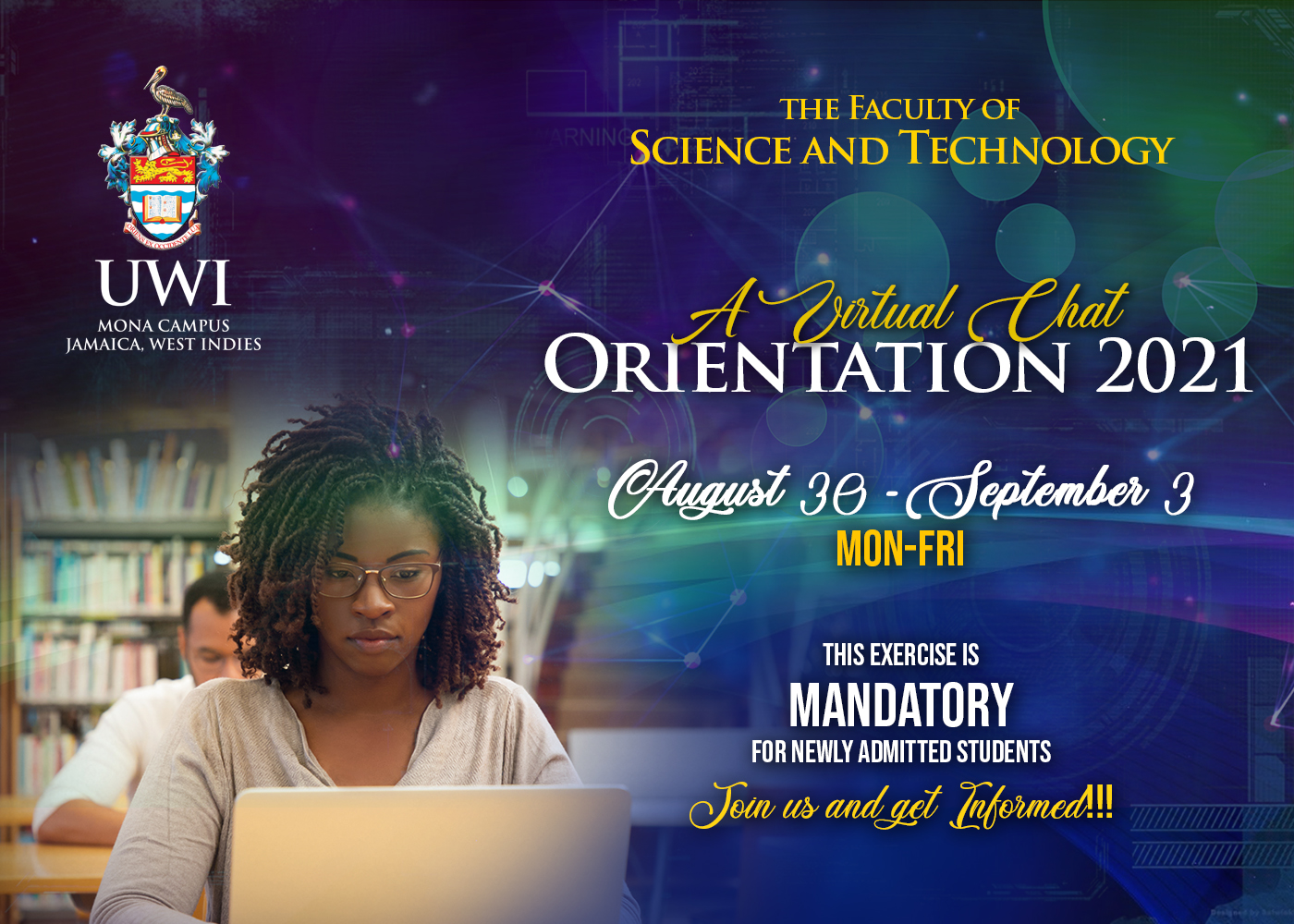
Join the Department for the Faculty of Science and Technology Orientation session for new and returning students Monday August 30 - Friday September 3rd 2021.
For those wanting to access the form for the GEOL1101 Lab Kits click here.

Since the 8th and 9th of April, the La Soufriere volcano on the Caribbean island of St. Vincent & the Grenadines has been erupting consistently. There was an evacuation of over 10,000 people from the Red Zone to a safer part of the island in the Green Zone. However, recurrent eruptions and thick clouds of ash which cover a large portion of the island has travelled as far as St Lucia and Barbados; this has compounded the disastrous effects of the volcano on the people and island itself. The island is also dealing with the current Covid-19 pandemic like the rest of the world and also a recent Dengue fever outbreak.
In this special episode, UnMute Now speaks with guests Dr. Rose-Ann Smith who is a Natural Disaster Management Consultant and Lecturer at the University of the West Indies (Mona Campus) and the St. Vincent Consul General in Northern Ireland, Dr. Christopher Stange, about the impact of this humanitarian crisis on St. Vincent and the way forward.
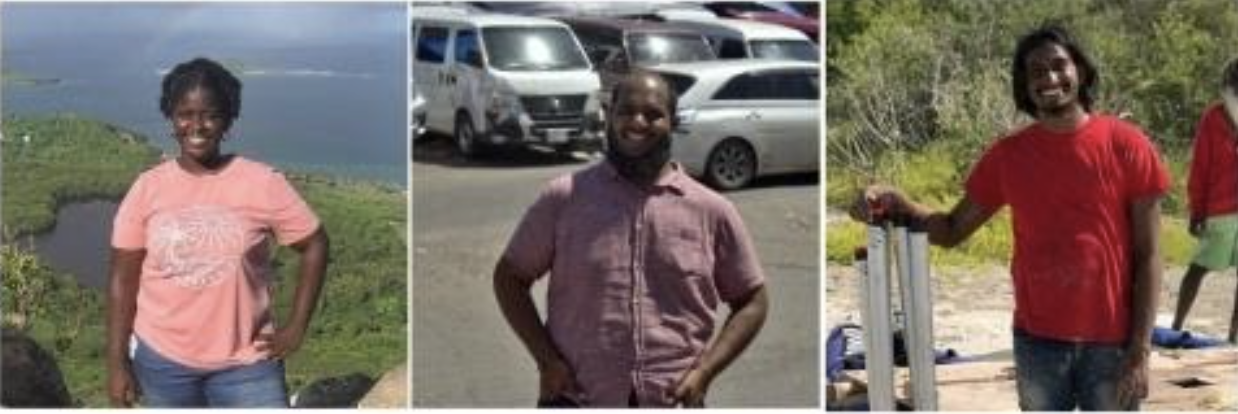
Three Geography and Geology graduate students - Kristinia Doughorty, Aleem Mahabir and Romario Anderson – were recently announced as winners (Crime and Security category) from a pool of over 100 entrants in the 2020 Democratizing Innovation in the Americas (DIA) Labs Ideathon competition. The competition serves as a platform for young professionals to start long-term projects in community building by seeking out innovative solutions to combat the impact of the fast-spreading COVID-19 pandemic in the sectors of education, health, economic relief and crime and security.
The three-member team, assisted by Dr. Robert Kinlocke (lecturer Geography and Geology) proposed a solution to projected increases in crime rates due to the major economic disruptions from the unprecedented global effort being undertaken to flatten the COVID-19 curve. An increasing crime trend is a concern for law enforcement agencies in the Global South, like the Jamaica Constabulary Force, who already struggle to address disproportionately high crime rates in the face of major resource constraints. The team proposed the implementation of a multidimensional, proactive approach to community crime control and management, which optimized the efficiency of local policing efforts while keeping costs in check. Their novel solution integrates various methods of predictive policing (e.g. the performance management system COMPSTAT), with a restorative social justice component that utilizes a comprehensive mix of psychological, social and community interventions to address the root structural causes of crime. They have received funding from the Institute of Labour and Economics, Citibank, Trust for the Americas and the Organization of American States to implement their solution in the community of Friendship Lane, Kingston, which will serve as a pilot for other similar efforts.
For more on Urban Labs for Youth Innovation: https://www.thetrustfortheamericas.org/programs/dia/urban-labs-youth-inn...
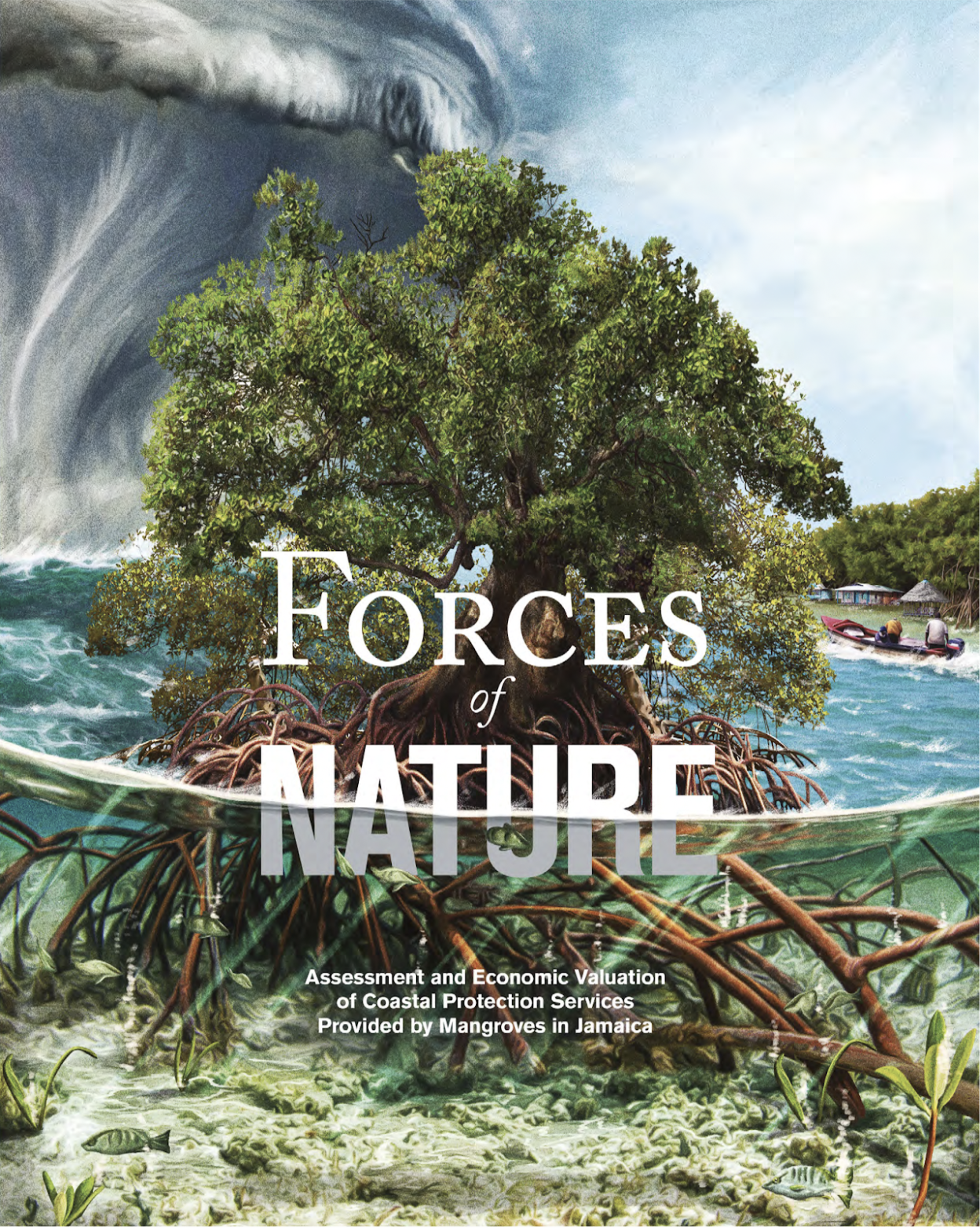
Members of the Department of Geography and Geology have contributed significantly to a World Bank Report on the Assessment and Economic Valuation of Coastal Protection Services provided by Mangroves in Jamaica. The report entitled “Forces of Nature” can be downloaded at the National Environment Protection Agency’s website www.nepa.gov.jm, and
the World Bank’s website (documents.worldbank.org). The report examines the considerable flood risk reduction services that mangroves provide to Jamaica, together with benefits related to fisheries production, and carbon sequestration. This report supports the growing interest within the development agenda to include nature-based solutions for disaster risk management and provides vital information for discussion on climate change adaptation and mitigation, insurance, and disaster recovery decisions.
Kristinia Doughorty is a member of the Youth Committee planning the VII Regional Platform for Disaster Risk Reduction in the Americas. This forum is in collaboration with the UNDRR, UNICEF, UNESCO and IFRC. Leading up to the forum, the committee will be organizing virtual sessions to engage the youth of the region. These include webinars on climate change impact on the region, surveys capturing the views of youth across the region and blogposts showing youth views. The youth committee will also be participating in the Red Cross and Red Crescent Virtual Climate Change Summit to dialogue with leaders in the region for greater youth involvement in Climate Change and Disaster Risk Reduction.
The activities aim to increase the resilience of the region to Disaster Risk Reduction and Climate Change. It is also to empower and engage the youth of the region with key stakeholders to allow for a more participatory approach to tackling core issues faced by the region.